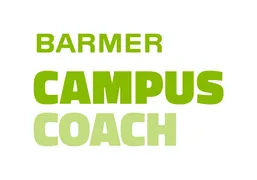University life is commonly seen as a formative yet life-changing phase. It often begins with moving out of the family home and stepping into a new life. This time is marked by new friendships, first professional experiences, and numerous personal developments. However, studying also brings its own specific challenges. The pressure can be manifold: exam stress, high performance expectations, added burdens from part-time jobs, as well as financial worries and fears about the future. All of these factors can significantly impact the health of aspiring academics.
Universities, therefore, play a central role in health promotion and prevention within the lives of students. An established example of programs that students can access is the BARMER Campus Coach, which is also offered at the Technical University of Munich as part of the TUM4Mind program. The Assistant Professorship of Health Literacy, led by Prof. Dr. Orkan Okan, is evaluating the Campus Coach project. The initiative is funded by the Barmer Health Insurance with a sum of approximately €250,000.
"Student health has always been an important topic, but its consideration in scientific research and societal support has only just begun. In recent years, the mental health of students has been negatively affected, and they have had to experience and process numerous stressful life events. It is essential to offer health promotion and prevention measures within the university environment to help students navigate their studies in a healthy and successful way," explains Prof. Dr. Okan.
The BARMER Campus Coach supports the physical and mental health of students through app-based use, free mindfulness offerings, and practical digital content. In addition, workshops, lectures, and experience days foster sustainable health-promoting structures at universities. The two research associates, Dr. Denise Renninger and Lisa Stauch, explain: "The program includes online learning formats addressing topics such as exercise, nutrition, interpersonal relationships, and exam stress. The goal of the evaluation is to examine both the effects on students and the implementation at universities, to identify necessary needs, and to further develop the program." Ultimately, the aim is to provide students with support in their academic lives and equip them with tools to be more resilient to psychological stress.
The program evaluation consists of two parts: an effects evaluation and a process evaluation. The effects evaluation investigates the impact on students' health over a period of ten months through an online survey. The focus is particularly on mental well-being. "We conduct the survey at two time points to measure changes in mental health as well as mental and general health literacy," explains Dr. Renninger.
A key goal of the project is to demonstrate the effectiveness of the program. "Often, many health projects lack the necessary data. Our evaluation is designed to ensure that the Campus Coach has positive effects and to identify areas for potential improvement," explains Stauch.
The process evaluation, on the other hand, involves retrospective surveys of students who have already used the program, as well as staff members at participating universities. "We want to know which formats are particularly well-received and which services students find helpful," explains Lisa Stauch. "We aim to identify the most frequently used activities—whether online offers such as podcasts or in-person events. On the university side, we want to find out what structural changes the project can bring, for example, in terms of communication with students."
Ultimately, the evaluation project aims to ensure that it meets the needs of the students. Denise Renninger concludes: "The evaluation should help allocate resources strategically where they are most needed."
To the homepage of the Assistant Professorship of Health Literacy
To the homepage of the Barmer Campus Coach
Contact:
Prof. Dr. Orkan Okan
Assistant Professorship of Health Literacy
Georg-Brauchle-Ring 60/62
80992 München
Phone: 089 289 24986
E-Mail: Orkan.Okan(at)tum.de / info.healthliteracy(at)tum.de
Dr. Denise Renninger
Assistant Professorship of Health Literacy
Georg-Brauchle-Ring 60/62
80992 München
Phone: 089 289 24 686
E-Mail: denise.renninger[at]tum.de
Lisa Stauch
Assistant Professorship of Health Literacy
Georg-Brauchle-Ring 60/62
80992 München
Phone: 089 289 24660
E-Mail: lisa.stauch[at]tum.de
Text: Bastian Daneyko
Photos: Private



